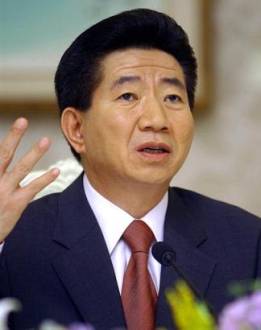|
|
Pension Contribution to Rise Sharply
By Soh Ji-young
Korea Times, May 25, 2004

Individuals will have to shoulder the growing burden for payment of the national pension plan while pension benefits are to decline, as the government on Tuesday approved long-term measures to collect more contributions and cut pension payments.
Starting in 2010, monthly pension contributions will rise to 10.38 percent from the current 9 percent of average wages and increase 1.38 percentage points every five years to reach 15.90 percent by 2030.
However, pension benefits will be lowered to 55 percent of a contributor's average wage from the current 60 percent starting from 2005, and drop further to 50 percent from 2008.
The measures aim to financially stabilize the pension scheme and prepare for the aging of society, but the public has been fiercely protesting the plan as they are due to aggravate the financial burden of citizens.
The government approved the measures during a Cabinet meeting presided over by President Roh Moo-hyun.
Stressing that the measures should be implemented smoothly, Roh ordered government officials to strengthen publicity campaigns to persuade the public of the necessity of pension system reform.
Officials said that the revision plan will be submitted to the National Assembly early next month and implemented from January of next year.
``Even if the pension contributions are hiked to 15.9 percent in 2030, the rates are still lower than those of advanced countries while benefits maintain similar levels, '' a Health-Welfare Ministry official said.
The government has predicted that the national pension fund will dry up by 2047 if current levels are maintained.
According to the plan, a national pension policy council headed by the Prime Minister will be established to oversee various reform measures on managing national pensions.
In the case of an average wage worker who contributed pensions for 40 years, pension benefits will be lowered to 55 percent of the contributor's average wage from the current 60 percent, but pension contributions will steadily rise to reach 15.9 percent by 2030. In the case of previous subscribers, they will be guaranteed pension rates promised at the time of subscription.
Some revisions were also drawn up to effectively reflect the changing demographical trends and family patterns, such as providing more incentives for the elderly who work beyond retirement age and guarantee pension contributions for those who remarry.
To encourage the elderly to engage in economic activities, the amount of benefits will decrease for subscribers who file for elderly pensions before they reach 60 years of age, but those who work after 60 will be able to receive additional funds.
Pensions for divorced spouses will also continue to be handed out even after they remarry, government officials said.
Public resistance to the national pension scheme has been growing after netizens circulated criticism of the national pension scheme throughout cyber space.
Some have even suggested holding a candlelight protest this Saturday in Kwanghwamun, central Seoul to call for the scrap of the pension system.
|
|



